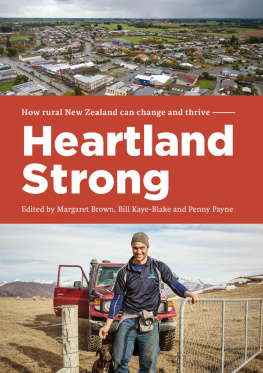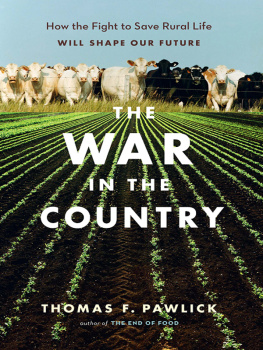COPYRIGHT 1994 BY
Harwood Academic Publishers GmbH
All rights reserved.
No part of this book may be reproduced or utilized in any form or by any means, electronic or mechanical, including photocopying and recording, or by any information storage or retrieval system, without permission in writing from the publisher. Printed in Singapore.
Harwood Academic Publishers
Poststrasse 22
7000 Chur, Switzerland
BRITISH LIBRARY CATALOGUING IN PUBLICATION DATA
Pratt, Jeff
The Rationality of Rural Life: Economic and Cultural
Change in Tuscany. (Studies in Anthropology & History, ISSN-1055-2464; Vol 17)
I. Title II. Series
306.34909455
ISBN 3-7186-5627-2
DESIGNED BYMaureen Anne MacKenzie
Em Squared, Main Street, Michelago, NSW 2620, Australia
FRONT COVER Meal in the chestnut woods. Grosseto Province, October 1974. Photograph by the author.
A cknowledgements have increasingly become quite lengthy essays, offering the reader a wealth of biographical details, from the intellectual odyssey of the writer to the fate of the family dog during fieldwork. I prefer something simpler, partly because my main intellectual debts are to the writers whose arguments have shaped my own, and this engagement is referenced in the book itself. There are still many people and organizations to thank.
This book was made possible by the financial support I received from a number of bodies. The bulk of the research was the result of a grant in 1987 from the ESRC to make a case study of rural change in Italy. I am also grateful to Pietro Clemente, then at the University of Siena, who in 1985 put together a research team to study social life in the comune of Castiglione DOrcia and made available a small research grant which I used to study a range of co-operative organizations. The University of Sussex gave me a terms study leave for the writing of this book and made a financial contribution to the costs of preparing the manuscript for publication. I was very fortunate to be able to rely on the professional skills and painstaking care of Margot Sims in the production of the text.
Many of the central arguments of this book first appeared as a working paper in 1989, and I am very grateful to my colleagues at the University of Sussex who commented on it, and especially to Ralph Grillo and Pramit Chaudhuri who gave additional advice on draft chapters. The completed manuscript was read by Philip Thomas at the LSE, who not only did the proof reading, eliminated much clumsy grammar and prepared the index, but encouraged me to expand the argument with a wealth of scholarly references. I am extremely grateful for his support, and I have drawn on his comments in developing the comparative dimensions of the study: my only regret is that it was not possible to follow through all the possibilities he suggested.
Fieldwork in 1987 brought me into contact with people enjoying highly diverse circumstances and lifestyles: seasonal labourers, farmers, managers, millionaire landowners, technicians and politicians. For reasons which are partly explained in the Introduction, the research posed problems of solidarity and legitimacy which were significantly different from my work in some of the same districts twelve years earlier. The surprise in this fieldwork were the encounters with the very successful entrepreneurs and estate managers of Montalcino. The majority were extremely accessible, and they continued to provide quantitative and qualitative information which was essential to my research, even as they became aware that we did not share the same economic priorities or political views. By contrast many of the farmers, who had less to lose or to gain by my presence, often imposed a more guarded and formal approach, although there were important exceptions. The result of all these rather unpredictable encounters is that generally speaking those who were most open during the research are those least likely to agree with the arguments in this book. In the circumstances it seems appropriate to extend a general thanks to the very large number of people in Tuscany who willingly or unwillingly contributed to the research.
There is one group who I would like to thank more personally. They are the farming families at Ripa DOrcia who I first met in 1984 and who represent a remarkable political culture in rural central Italy, one that is now in crisis. Their analysis of changes in rural life and on the forces shaping their own lives led to the development of a co-operative experiment. Over the last ten years I have learnt enormously from their reflections and from the successes and failures of that experiment, and am greatly indebted to the generosity of the co-op members and especially to their president Loreno Mascelloni.
The book is dedicated to Assuntina, Carlo and Julia with whom I have shared the pleasures of living in England and Italy, and to Lilla who always gets left behind.
T he river Orcia flows westwards out of a majestic and much eulogized valley in central Italy, cuts a ravine through the northern flanks of Monte Amiata, and descends through rolling hills to the coastal plain, the Maremma. On its upper reaches, a thousand years ago, the first farms regulated by the






